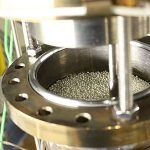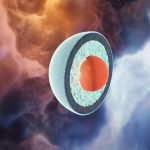Why established battery giants still hold the advantage in the sodium-ion era
Sodium-ion batteries are often described as the next big thing in clean energy storage, promising lower costs and freedom from scarce materials like lithium...
How natural hydrogen, hiding deep in the Earth, could serve as a new energy...
In the search for more, new and cleaner sources of energy, a largely untapped resource is emerging: natural hydrogen.
Unlike hydrogen produced from industrial processes,...
Scientists create the hardest test ever—and AI is failing it
For years, scientists have measured artificial intelligence using tests originally designed for humans.
But as AI systems improved, many of these exams became too easy....
How long do civilizations last
It is one of the most famous questions in science, and it was asked, as legend has it, over lunch.
Enrico Fermi, the physicist who...
Why breakthrough solar cells often fail to reach your roof
Many new energy technologies look impressive in the laboratory but never become real products.
Solar cells are a clear example. Scientists can achieve record performance...
Scientists discover how to block noise without blocking airflow
Designing spaces that are both well ventilated and quiet has always been difficult.
Openings that allow fresh air to circulate—such as vents and ducts—also let...
MIT’s new AI turns creative 3D designs into objects that won’t break
Generative artificial intelligence can produce amazing designs for objects such as decorations, furniture, and accessories.
With a simple text prompt, AI tools can create detailed...
How an ordinary umbrella can trick and capture autonomous drones
Autonomous drones that can follow people or objects on their own are becoming more common in policing, border security, and surveillance.
These aircraft use camera-based...
Scientists discover cost-saving way to build structures on the moon
Scientists are exploring an exciting idea for future space missions: building structures on the Moon using the Moon’s own soil.
A new study shows that...
Raincoat no longer waterproof? Why—and how to fix it
You pull on your rain jacket, step out into the storm, and within half an hour your undershirt is soaked.
The jacket you purchased as...
AI eye test could catch silent blindness earlier than doctors alone
Glaucoma is a serious eye disease that slowly damages vision and can lead to permanent blindness if it is not treated.
It is sometimes called...
Scientists solve key stability problems in inverted perovskite solar cells
Solar power is getting cheaper and more powerful, but researchers are still working to make the next generation of solar panels reliable enough for...
FEATURED
Are we living in a virtual reality? Exploring a new law of physics
In a fascinating exploration, Dr. Melvin Vopson, a physicist from the University of Portsmouth, has ventured into a realm that often intertwines science and...
Why established battery giants still hold the advantage in the sodium-ion era
Sodium-ion batteries are often described as the next big thing in clean energy storage, promising lower costs and freedom from scarce materials like lithium...
Black holes don’t always power gamma-ray bursts, shows study
Gamma-ray bursts (GRBs) have been detected by satellites orbiting Earth as luminous flashes of the most energetic gamma-ray radiation lasting milliseconds to hundreds of seconds.
Scientists develop groundbreaking liquid metal energy storage for industrial heat
Researchers at the Karlsruhe Institute of Technology (KIT) are pioneering a groundbreaking high-temperature heat storage system that could dramatically change how industries use energy.
By...
The most massive neutron stars probably have cores of quark matter
Atoms are made of three things: protons, neutrons, and electrons.
Electrons are a type of fundamental particle, but protons and neutrons are composite particles made...




















